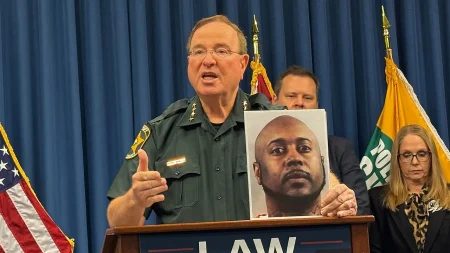Darfur Crisis Intensifies: International Community’s Struggle to Intervene as Violence Resurges
The Echoes of an Unresolved Conflict: Darfur’s Renewed Tragedy Unfolds
In the scorched landscapes of western Sudan, a horrifying reprise of violence has engulfed Darfur’s communities, leaving international observers and humanitarian organizations sounding urgent alarms that echo hauntingly across diplomatic corridors worldwide. More than two decades after the region first emerged as a byword for systematic atrocities, Darfur is once again witnessing widespread violence that bears disturbing similarities to the catastrophic events of the early 2000s. Villages and towns that had cautiously rebuilt after previous devastation now stand abandoned or in ashes, as militias – many with direct lineages to the infamous Janjaweed – sweep through civilian populations with apparent impunity. What distinguishes today’s crisis from yesterday’s genocide is not the nature of suffering but rather the world’s muted response, as international attention remains divided among competing global emergencies and geopolitical interests. Humanitarian workers report systematic targeting of civilian infrastructure – marketplaces bombed during peak hours, hospitals deliberately destroyed, and displacement camps surrounded by hostile forces preventing both escape and aid delivery. “The patterns we’re witnessing aren’t random,” explains Dr. Amina Khalil, a human rights observer who has documented atrocities in the region for over fifteen years. “There’s a methodical quality to this violence that suggests coordination and intent to eliminate specific communities from their ancestral lands.”
A Global Community Paralyzed Between Awareness and Action
The international community’s response to Darfur’s renewed crisis reflects a troubling paradox: unprecedented access to real-time information about atrocities coupled with a striking inability to translate awareness into meaningful intervention. Satellite imagery confirms the systematic destruction of over 130 villages in North Darfur alone since January, while smartphone videos documenting executions and mass graves circulate on social media platforms, instantly accessible to policymakers and public alike. Yet this transparency has not catalyzed proportionate action. The United Nations Security Council, hamstrung by competing strategic interests among permanent members, has issued three statements of “deep concern” without authorizing substantive measures to protect civilians or hold perpetrators accountable. Regional organizations like the African Union and Arab League have similarly offered diplomatic rhetoric without deploying peacekeeping forces or imposing meaningful sanctions against known orchestrators of violence. Meanwhile, Western governments that once championed the “Responsibility to Protect” doctrine following Rwanda’s genocide have retreated toward selective humanitarian engagement – offering emergency funding that remains largely undeliverable due to security constraints, while avoiding military or robust peacekeeping commitments. “We’re witnessing the consequences of intervention fatigue,” notes Ambassador Josephine Odera, former UN special representative to Sudan. “The international system has grown increasingly skeptical about its ability to resolve complex conflicts through external intervention, leaving affected populations essentially abandoned to their fate.”
The Human Toll: Communities Shattered as Survivors Seek Refuge
Behind the diplomatic stalemate lies an escalating humanitarian catastrophe that has already displaced more than 2.3 million people across Darfur’s five states, with approximately 580,000 having fled across borders to Chad, South Sudan, and the Central African Republic. These statistics, however, fail to capture the profound human dimension of the crisis. In sprawling displacement camps that lack adequate water, sanitation, and security, survivors recount horrors that will shape generations. Nineteen-year-old Fatima Ishaq described to reporters how she walked for seventeen days with her two younger siblings after witnessing the execution of their parents and elderly neighbors in their village near Jebel Marra. “They separated the men from the women, then shot the men in groups of five,” she recounted, her voice barely audible. “The soldiers told us this land was not for people like us anymore.” Medical facilities in border regions report treating unprecedented numbers of survivors of sexual violence, many bearing physical mutilations intended to prevent future childbearing – a tactic consistent with definitions of genocide under international law. Aid organizations struggle to meet even basic needs as funding shortfalls coincide with increasingly restricted humanitarian access. The World Food Programme recently announced a 40% reduction in rations for Darfuri refugees, citing donor fatigue and competing global emergencies. “We’re making impossible choices between feeding Syrian refugees, responding to famine in East Africa, or supporting Darfur’s displaced,” explains WFP Regional Director Marco Sandoval. “The international humanitarian system simply isn’t resourced to address multiple protracted crises simultaneously.”
Historical Echoes and Modern Complications: Understanding Darfur’s Recurring Nightmare
To comprehend Darfur’s current crisis requires understanding how historical grievances intersect with contemporary political dynamics. The region’s conflict has deep roots in colonial-era marginalization, resource competition between farming and herding communities, climate change impacts on arable land, and the systematic political exclusion of non-Arab populations from Sudan’s power structures. What began in 2003 as an insurgency against government neglect transformed into state-sponsored ethnic cleansing that claimed between 200,000 and 400,000 lives before a fragile peace process took hold. Today’s violence emerged following Sudan’s 2021 military coup, which dismantled civilian governance mechanisms and revitalized power networks responsible for previous atrocities. Rapid regional militarization has introduced sophisticated weapons systems into what were once low-intensity conflicts. Geopolitical competition for Sudan’s strategic location and natural resources has further complicated intervention prospects, with Russia expanding military cooperation with Khartoum while Gulf states pursue economic interests through relationships with various armed factions. “What we’re witnessing isn’t simply a continuation of previous conflicts,” explains Dr. Ibrahim Ahmed of Khartoum University’s Center for Conflict Studies. “It’s a dangerous evolution where historical grievances have been weaponized within a more complex regional power struggle.” Climate change has intensified competition for diminishing natural resources, particularly water and arable land, exacerbating tensions between communities. Meanwhile, Sudan’s economic collapse has created conditions where participation in militias offers young men their only viable source of livelihood.
The Accountability Void: Justice Delayed and Denied
The persistent culture of impunity surrounding Darfur’s atrocities represents perhaps the most significant failure of international response mechanisms. Despite the International Criminal Court’s 2009 indictment of Sudan’s former president Omar al-Bashir on charges of genocide, crimes against humanity, and war crimes, he remained in power for a decade afterward and continues to evade justice even after his 2019 overthrow. Numerous other indicted individuals not only remain free but hold positions of influence in Sudan’s current power structures. Evidence collection efforts by human rights organizations face increasing obstruction, with investigators denied visas, communications infrastructure disabled in conflict zones, and witnesses threatened. The transitional justice mechanisms established under Sudan’s civilian government have been systematically dismantled since the military takeover. “When perpetrators of previous atrocities not only escape punishment but are rewarded with political power, it creates a terrible incentive structure,” observes International Crisis Group analyst Fatima Mohammed. “Today’s armed groups operate with complete confidence that accountability is unlikely, regardless of their actions.” This accountability void extends beyond individual perpetrators to encompass international actors who continue arms sales to Sudan despite documented human rights abuses. Similarly, corporations maintaining business relationships with entities linked to militias face minimal scrutiny or consequences. “Corporate complicity in Darfur’s tragedy deserves far more attention,” argues human rights attorney Philippe Sands. “Resource extraction companies, arms manufacturers, and financial institutions that facilitate these relationships all contribute to sustaining the conflict economy.”
Moving Forward: Reimagining International Response to Prevent Further Catastrophe
Despite the bleak outlook, humanitarian experts and conflict resolution specialists outline potential pathways toward meaningful intervention that could mitigate suffering and establish foundations for sustainable peace. Immediate priorities include establishing humanitarian corridors protected by neutral security forces, deploying an expanded UN peacekeeping mission with robust civilian protection mandates, implementing targeted sanctions against specific military leaders and commercial entities financing violence, and strengthening accountability mechanisms through evidence preservation and witness protection programs. Long-term solutions must address Darfur’s structural challenges through inclusive political representation, equitable resource-sharing arrangements, climate adaptation support for agricultural communities, and comprehensive disarmament programs coupled with alternative livelihood opportunities for militia members. Regional ownership of peace processes remains essential, with the African Union potentially playing a central coordination role supported by international resources and expertise. Most critically, breaking the cycle of violence requires challenging the narrative that Darfur represents an intractable “ethnic conflict” beyond resolution. “What’s happening in Darfur isn’t inevitable or unstoppable,” emphasizes veteran mediator Dr. Samantha Reynolds. “These are orchestrated campaigns with identifiable decision-makers responding to specific incentives. Change those incentives, and behavior changes accordingly.” The international community’s capacity to respond effectively to Darfur’s crisis ultimately reflects choices rather than capabilities – choices about where to focus diplomatic capital, how to allocate humanitarian resources, and which conflicts merit sustained engagement. “We know how to stop atrocities,” concludes former UN High Commissioner for Human Rights Zeid Ra’ad Al Hussein. “The question isn’t whether we can intervene effectively in Darfur, but whether we will.”










